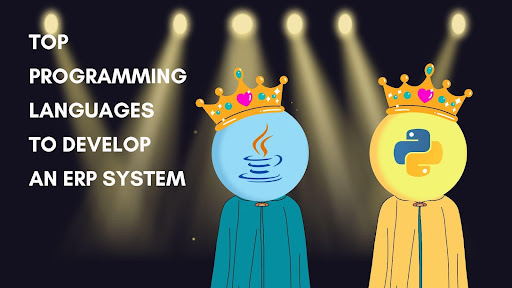Choosing the right technology for ERP system development is like choosing the right shoes for a marathon. You don’t want to end up with blisters and sore feet, so you need to make sure you choose the right pair. By developing an ERP system, the company can increase productivity, reduce costs, and make better decisions. However, choosing the best ERP system for your business is a challenge, as there are many ERP systems on the market. Hence the ideal approach is to go with your company’s own ERP System Development that can satisfy your unique needs and demands and be simple to use and deploy.
There are three main types of ERP technology: erp on premise, cloud-based, and hybrid. The finest ERP technology for your company will be determined by your demands and requirements.
- If you need a system with more control over your data and security, then an on-premise system can be your best option.
- A cloud-based system may be a better choice if you are looking for a more affordable system.
- And if you need a system that offers the best of both worlds, then a hybrid system may be the best option.
The best way to choose the right ERP technology for your business is by identifying the issue that you want to be resolved.
Factors to Consider for ERP System Development
If you are considering to develop an ERP system, it is important to research and understand the requirements of your business. The correctly developed ERP software would assist you in increasing efficiency, lowering expenses, making better decisions, and increasing customer satisfaction.
Here are some factors to consider while developing an ERP system:
- Company Requirement: What are your exact requirements and needs? What are your objectives with ERP system development?
- Your budget: How much money are you willing to invest on an ERP application?
- Your timetable: When is it necessary to establish an ERP system?
- Your industry: What industry are you in? Are there any specific ERP systems that are designed for your industry?
- The size of your company: How big is your company? Do you require ERP software that can expand with your company?
Once you have considered these factors, you can narrow down your options and build the right ERP system for your business.
Most Ideal Programming Languages to Develop an ERP System
- Java
- Python
How to Get Your Team on Board with ERP Technology?
Following these suggestions will improve your chances of successfully implementing the developed ERP technology. Here are some pointers on how to properly implement the right ERP technology:
- Plan carefully: ERP system development is complex, so planning is crucial. This includes creating a timeline, developing a budget, and identifying resources.
- Get buy-in from stakeholders: Implementing an ERP system is a significant change, so getting buy-in from all stakeholders is essential. This includes employees, managers, and executives.
- Please communicate with your team: Throughout the implementation process, it is vital to communicate with your team. This will assist in keeping them informed of developments and addressing any concerns.
- Provide training: Once the ERP system is developed, it is vital to train employees. This will assist them in learning how to utilize the system and avoiding mistakes.
- Be patient: Building and implementing a new ERP system can be challenging. Allow your employees time to acclimatize to the new system and be patient with them.
Here are some additional tips:
- Test the system thoroughly: Before you go live with the new ERP system, it is crucial to test it thoroughly. This will assist you in identifying and resolving any possible issues before they have an impact on your organization.
- Have a backup plan: If something goes wrong during the implementation process, it is necessary to have a backup plan. This could include having a contingency plan for data loss or having a plan to roll back to the old system if necessary.
- Be prepared for change: Implementing a new ERP system will inevitably lead to changes in your business. Be prepared for these changes and be willing to adapt.
Following these suggestions will improve your chances of successfully using the correct ERP technology.
Conclusion
Choosing the correct ERP solution is a critical decision for every company. The correct ERP software can assist you in increasing efficiency, lowering expenses, making better decisions, and increasing customer satisfaction. Following the advice in this article will boost your chances of developing the best ERP technology for your company.
If you need an in-house team of developers or you want to augment your existing team, hiring developers from Bacancy Technologies would be an ideal solution.






